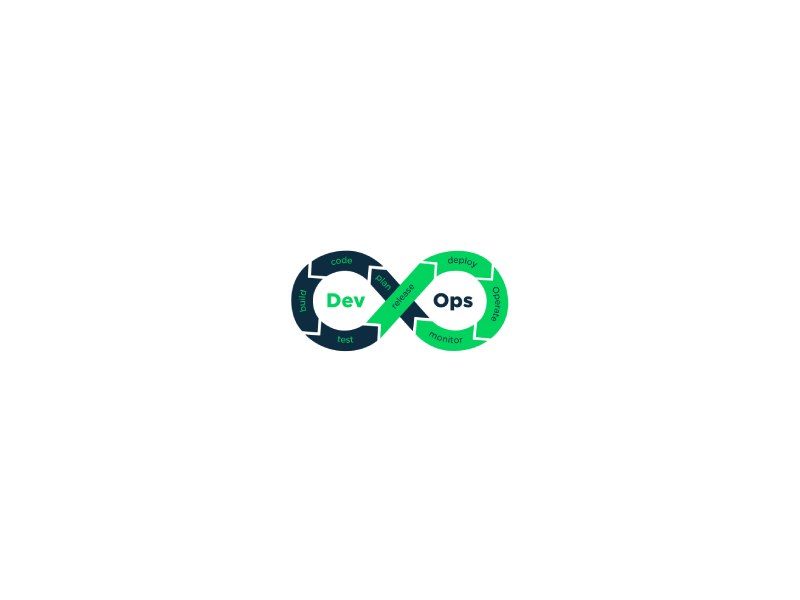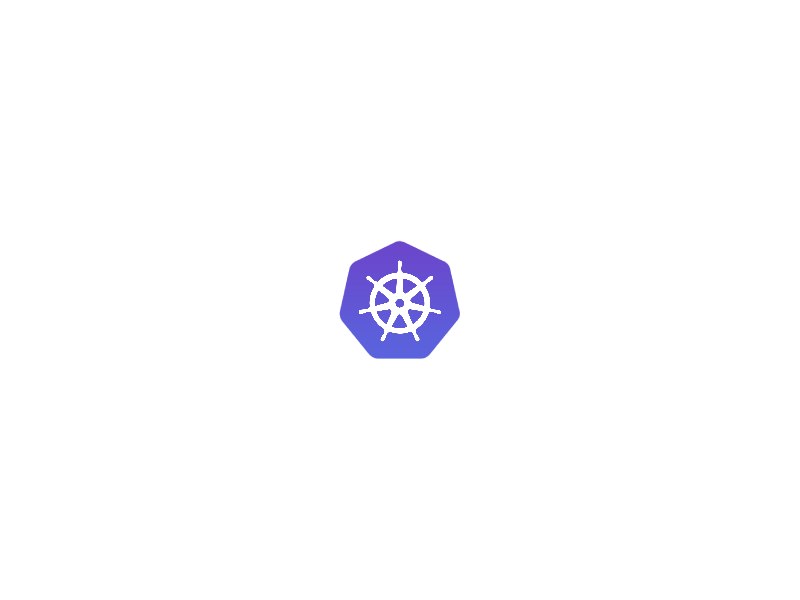Look no further than the world of DevOps engineering! Transitioning to a DevOps role may seem daunting at first, but with the right guidance and mindset, you can make a successful career shift. In this article, we’ll explore the steps you need to take to change your career to a DevOps engineer.
First and foremost, it’s important to understand what DevOps is all about. DevOps is a software development approach that combines development (Dev) and operations (Ops) teams to streamline the software delivery process. DevOps engineers play a crucial role in bridging the gap between developers and IT operations, ensuring smooth collaboration and efficient deployment of software products.
To kickstart your journey towards becoming a DevOps engineer, you need to acquire the necessary skills. Begin by gaining a solid foundation in programming languages like Python, Ruby, or Java. Familiarize yourself with operating systems such as Linux and Windows, and become proficient in automation tools like Jenkins or Ansible. Additionally, learning about cloud platforms like Amazon Web Services (AWS) or Microsoft Azure will greatly benefit your DevOps career.
Next, consider pursuing relevant certifications. Certifications like AWS Certified DevOps Engineer or Microsoft Certified: Azure DevOps Engineer Associate can boost your credibility and demonstrate your expertise to potential employers. Furthermore, participating in coding bootcamps, online courses, or attending DevOps conferences can provide valuable networking opportunities and real-world insights.
Networking is key when transitioning to a new career. Engage with the DevOps community through online forums, social media groups, and local meetups. Building connections with experienced professionals can lead to mentorship opportunities, job referrals, and access to valuable resources.
When applying for DevOps positions, tailor your resume to highlight relevant skills and experiences. Emphasize your programming proficiency, automation knowledge, and any relevant projects or collaborations. Be prepared to showcase your problem-solving abilities and demonstrate how you’ve contributed to improving software development processes in previous roles.
Lastly, don’t be afraid to start small. Consider entry-level positions or internships that allow you to gain hands-on experience in a DevOps environment. As you grow and learn, you can gradually take on more complex projects and responsibilities.
In conclusion, transitioning to a DevOps engineer role requires dedication, continuous learning, and networking. By acquiring the necessary skills, pursuing certifications, networking with professionals, and gaining hands-on experience, you can successfully change your career to a rewarding and dynamic field like DevOps engineering. So, what are you waiting for? Take the first step towards an explosive new career today!
Building a Solid Foundation in Programming and Scripting
Do you aspire to create innovative software applications, design cutting-edge websites, or automate processes to boost efficiency? If so, building a solid foundation in programming and scripting is the key to unlocking your potential in the digital realm. In this article, we’ll explore how you can lay the groundwork for success and embark on an exciting journey of coding mastery.
One of the fundamental aspects of becoming a proficient programmer or scripter is mastering programming languages. These languages serve as the building blocks of any software development or scripting endeavor. Popular languages like Python, JavaScript, C++, and Ruby provide a wide range of functionality and are widely used in various industries. By dedicating time and effort to learning these languages, you empower yourself with the ability to bring your ideas to life.
To embark on this language-learning adventure, start by selecting one programming language that aligns with your goals and interests. Begin with the basics and gradually progress to more advanced concepts. Online tutorials, interactive coding platforms, and video courses can assist you in grasping the fundamentals while keeping it engaging and fun.
Moreover, practice is crucial in reinforcing your understanding and honing your skills. Code challenges, small projects, and real-world applications enable you to apply what you’ve learned and build confidence. Collaborating with other aspiring programmers and participating in coding communities allows you to benefit from different perspectives and learn from experienced individuals.
Remember, building a solid foundation in programming and scripting isn’t just about memorizing syntax or acquiring technical prowess. It’s about embracing a problem-solving mindset and continuously challenging yourself. Treat coding as a creative outlet, a means to express your ideas and transform them into functional solutions. Embrace the joy of troubleshooting, as every bug you encounter provides an opportunity to grow and improve.
In conclusion, building a solid foundation in programming and scripting is an exciting journey that requires dedication, practice, and perseverance. Mastering programming languages, engaging in practical projects, and fostering a problem-solving mindset are vital steps towards unlocking your potential. So, dive into the world of coding, embrace the surprises and explosions along the way, and witness the transformative power of your newly acquired skills. Happy coding!
Mastering Essential Tools and Technologies for DevOps
In this article, we will delve into the essential tools and technologies that can propel your DevOps efforts to new heights.
One of the fundamental pillars of DevOps is automation. By automating repetitive tasks and processes, teams can save time and effort, allowing them to focus on more critical aspects of their work. Continuous Integration (CI) tools like Jenkins and Travis CI enable developers to merge code changes frequently and detect integration issues early on. These tools streamline the build and test phases, ensuring that any bugs are caught before they escalate into larger problems.
To ensure the smooth deployment of applications, Configuration Management tools like Ansible, Chef, and Puppet come into play. These tools allow for consistent infrastructure provisioning and configuration. With their declarative and idempotent nature, system administrators can easily manage and scale infrastructure while maintaining consistency across various environments.
Containerization has been a game-changer in the world of DevOps, and Docker is at the forefront of this revolution. Docker enables the creation and deployment of lightweight, portable containers that encapsulate an application and its dependencies. With Docker, you can achieve consistency across different environments, simplify deployment, and enhance scalability.
No conversation about DevOps tools would be complete without mentioning Kubernetes. Kubernetes is an open-source container orchestration platform that automates the deployment, scaling, and management of containerized applications. It provides features like load balancing, self-healing, and service discovery, making it an indispensable tool for managing complex microservices architectures.
In addition to these technological marvels, embracing Infrastructure as Code (IaC) is crucial for effective DevOps implementation. Tools like Terraform and CloudFormation facilitate provisioning and management of cloud resources using code, allowing for reproducible infrastructure and easy scalability.
In conclusion, mastering essential tools and technologies is paramount for successful DevOps implementation. By leveraging automation, configuration management, containerization, orchestration, and Infrastructure as Code, you can streamline your development and operations processes, achieve faster time-to-market, and deliver higher quality software. So, embrace these tools, ignite the spark of surprise and explosion in your DevOps journey, and witness the transformative power they bring to your organization. Happy DevOps-ing!
Gaining Experience in Cloud Computing and Infrastructure
In this article, we’ll dive into the exciting realm of gaining experience in cloud computing and infrastructure. Brace yourself for a mind-blowing journey filled with surprises and explosions of knowledge.
So, why is gaining experience in cloud computing and infrastructure crucial in today’s digital landscape? Well, let me paint you a picture. Imagine you have a superpower that allows you to store, manage, and access data and applications with lightning speed, scalability, and security. That’s precisely what cloud computing offers. It’s like having a virtual explosion of possibilities at your fingertips!
To embark on this adventure, start by understanding the fundamentals. Cloud computing revolves around the delivery of computing services over the internet. It encompasses various components such as servers, databases, networking, storage, and software. Think of it as a giant ecosystem where data flows seamlessly, expanding and contracting like a controlled explosion.
Now, how can you gain practical experience in this dynamic field? One way is through hands-on projects. Dive headfirst into building and managing cloud infrastructures using popular platforms like Amazon Web Services (AWS), Microsoft Azure, or Google Cloud Platform. Set up virtual machines, configure networks, and deploy applications. Feel the thrill of watching your creations come to life in the cloud!
Additionally, stay curious and continuously expand your knowledge. Join online communities, attend webinars, and devour informative articles like this one. Fuse theory with practice by exploring real-world case studies and staying updated on the latest trends and breakthroughs in cloud technology. Remember, knowledge is the fuel that keeps the cloud engine running smoothly.
As you gain experience, don’t forget to showcase your cloud skills to potential employers. Create a portfolio of projects highlighting your achievements and demonstrate your ability to architect scalable infrastructures and optimize cost-efficiency. Let your expertise explode onto the scene, leaving a lasting impression on recruiters and organizations seeking cloud-savvy individuals like yourself.
In conclusion, gaining experience in cloud computing and infrastructure opens up a world of possibilities. It’s like igniting a spark that propels your career to new heights. Embrace the surprises and explosions of knowledge as you delve into this exciting field. Remember, the cloud is your canvas—paint it with your expertise and watch your career soar!
Embracing Continuous Integration and Deployment Practices
If so, it’s time to embrace continuous integration and deployment practices. In this article, we’ll explore how these practices can revolutionize your development process, bringing surprising improvements and explosive results.
Continuous integration (CI) is a development practice that involves integrating code changes from multiple developers into a central repository on a regular basis. Gone are the days when developers worked in isolation, only merging their changes at the end of a lengthy development cycle. With CI, teams can collaboratively work on the same codebase, committing changes frequently. This ensures that surprises are caught early on, as issues are surfaced and resolved more rapidly.
Once the code is integrated, the next step is continuous deployment (CD). CD takes the concept of CI further by automating the release process. Instead of deploying code manually, CD allows for automated testing, building, and deployment of applications. This eliminates the need for last-minute rushing and reduces the chances of human error. Imagine the explosive power of having every successful commit automatically deployed to production, delighting users with new features and bug fixes without any delay.
Implementing CI and CD practices may seem daunting, but the benefits far outweigh the initial effort. By adopting these practices, teams can achieve faster time-to-market, improved quality, and increased productivity. Surprises and bottlenecks are identified sooner, allowing for quicker resolution. The rapid feedback loop ensures that developers can catch and fix issues promptly, avoiding costly delays down the line.
Furthermore, CI and CD promote a culture of collaboration, where developers and operations teams work together seamlessly. The continuous feedback and iterative nature of these practices foster innovation and encourage experimentation. Developers have the freedom to try out new ideas and release software more frequently, responding to user needs and market demands with agility.
In conclusion, embracing continuous integration and deployment practices can bring surprising improvements to your development process while delivering explosive results. By implementing CI and CD, you can eliminate surprises, reduce delays, and streamline your software delivery pipeline. Don’t get left behind in the traditional software development world; instead, embrace the power of CI and CD to propel your team towards success.
Developing Collaboration and Communication Skills
In today’s fast-paced world, success is not solely determined by individual talents but also by one’s ability to collaborate effectively and communicate with clarity. Developing collaboration and communication skills has become paramount in both personal and professional spheres. So, what does it take to foster these essential skills and unlock the door to success?
Collaboration is like a symphony where each instrument plays a crucial role in creating a harmonious melody. Similarly, when individuals come together, leveraging their unique strengths and perspectives, brilliant outcomes emerge. Effective collaboration entails active listening, open-mindedness, and embracing diverse ideas and opinions. By sharing knowledge and expertise, teams can achieve remarkable results that surpass individual efforts.
Communication is the glue that binds collaboration. It is the art of conveying thoughts, ideas, and emotions, ensuring a shared understanding. Just as explosions capture our attention, impactful communication grabs the listener’s interest and leaves a lasting impression. Clear, concise, and persuasive communication can ignite inspiration, drive engagement, and foster meaningful connections.
Developing collaboration and communication skills requires practice and self-awareness. It’s about cultivating empathy, adapting to different communication styles, and seeking common ground. Much like surprise elements in a story, effective communicators engage their audience by using relatable anecdotes, vivid examples, and rhetorical questions that spark curiosity.
To enhance collaboration and communication, organizations and individuals can invest in various strategies. Workshops and training programs can provide valuable insights into effective teamwork, conflict resolution, and active listening techniques. Additionally, leveraging technology tools and platforms can facilitate seamless communication, transcending geographical boundaries and time zones.
Just as fireworks light up the sky, developing collaboration and communication skills illuminates pathways to success. These skills foster creativity, innovation, and productivity in professional environments while nurturing healthy relationships in personal life. When individuals work cohesively and communicate transparently, they build a solid foundation for growth and achievement.
In conclusion, the ability to collaborate and communicate effectively is an essential ingredient in achieving personal and professional success. Cultivating these skills requires active effort, self-reflection, and continuous practice. By nurturing collaboration and communication, we can propel ourselves towards a future filled with endless possibilities. So let us embrace the power of collaboration and communication, and embark on a journey of growth, connection, and prosperity.
Navigating the Path to a DevOps Engineering Career
The world of technology is evolving rapidly, and DevOps has emerged as a critical field that bridges the gap between development and operations. In this article, we will explore the path to becoming a successful DevOps engineer, guiding you through the essential skills, educational background, and practical steps needed to thrive in this dynamic industry.
First and foremost, let’s address the burning question: what exactly is DevOps? DevOps is a collaborative approach that combines software development (Dev) and IT operations (Ops) to streamline the software delivery process. It revolves around fostering communication, automation, and continuous integration to enhance efficiency and productivity within organizations. With businesses increasingly relying on technology solutions, the demand for skilled DevOps engineers has skyrocketed.
To embark on your DevOps journey, a solid foundation in computer science or a related field is invaluable. A bachelor’s degree in computer science, software engineering, or information technology can equip you with the fundamental knowledge necessary for success. However, it’s important to note that a formal degree is not the only path to enter the DevOps realm. Certifications and hands-on experience can also play a vital role in shaping your career trajectory.
In addition to education, there are certain key skills that every aspiring DevOps engineer should cultivate. Proficiency in programming languages like Python, Java, or Ruby is highly desirable. A strong understanding of operating systems, networking, and cloud computing is also crucial. Familiarity with configuration management tools such as Ansible, Puppet, or Chef will further bolster your skill set.
However, technical skills alone are not sufficient for a thriving DevOps career. Soft skills like problem-solving, communication, and collaboration are equally important. DevOps engineers often act as liaisons between various teams, so being able to effectively communicate ideas and bridge gaps is essential.
To gain hands-on experience, consider seeking internships, participating in open-source projects, or contributing to relevant communities. Building a portfolio of projects and showcasing your practical expertise will greatly enhance your employability.
In conclusion, navigating the path to a DevOps engineering career requires a combination of technical acumen, continuous learning, and practical experience. Embrace opportunities to enhance your skills, whether through formal education or self-guided learning. Remember to stay up-to-date with the latest industry trends and technologies. With dedication, perseverance, and a passion for collaboration, you can pave the way to a successful and fulfilling career in DevOps engineering.




